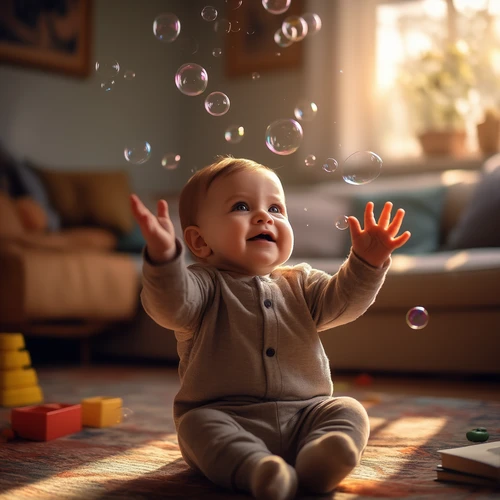Did you know that simple science experiments can be a fun way
to engage your baby and promote cognitive development?
Even at the earliest stages of life, babies are eager to explore their surroundings. Engaging them with age-appropriate science experiments can help enhance sensory skills, motor abilities, and foster curiosity.
Here are some safe and fun experiments you can try:
- Bubble Play: Blow bubbles around your baby and let them pop. This not only entertains but also helps in tracking eye movement and developing hand-eye coordination.

Just make sure to use non-toxic baby-friendly bubble solution.
- Sink or Float: Let your baby observe different objects in water. This can help them understand basic principles of buoyancy while they explore textures and materials.

Always supervise during this activity to ensure safety.
- Color Mixing: Use washable paints and let your baby mix them on paper. This not only helps them understand different colors but also gives them a fun sensory experience.

Ensure that the paint is safe for babies to handle.
- Texture Boards: Create boards with various textures like sandpaper, fabric, and foam. Let your baby touch them to understand different textures.

This can help in the development of fine motor skills.
- Shadow Exploration: Use a flashlight and make shadows on the wall, then let your baby explore by touching or observing. This could stimulate their imagination.

A great activity for quiet times.
Science experiments aren't just about understanding principles; they're also an opportunity to bond with your child. Make it a collaborative effort and let them lead the exploration as much as possible.
Engaging in these simple activities can be fun, educational, and strengthening for the parent-child relationship.


